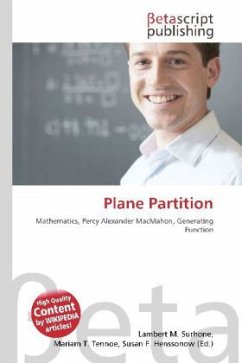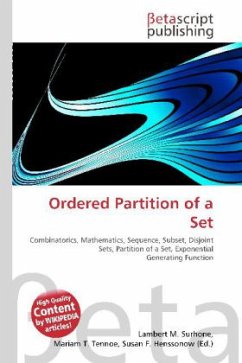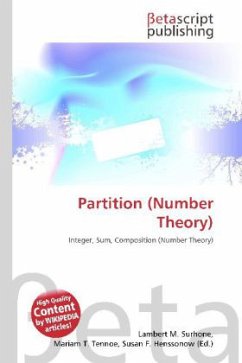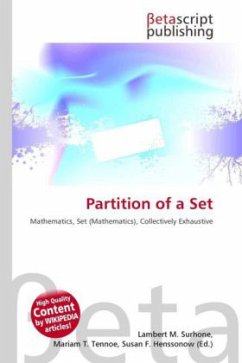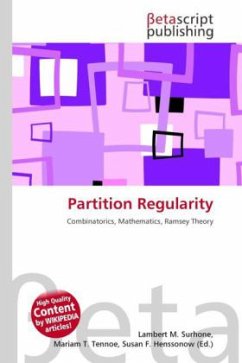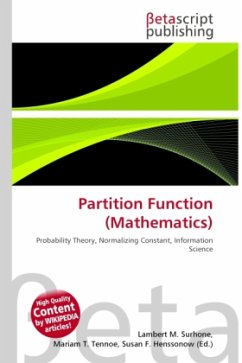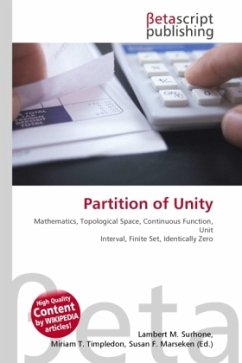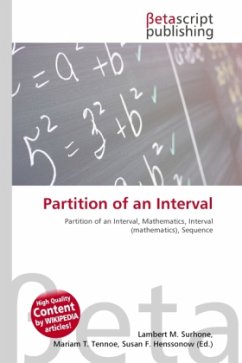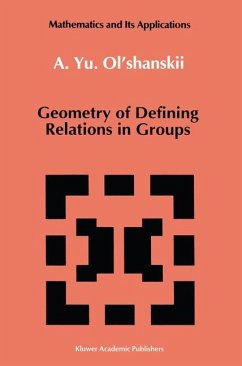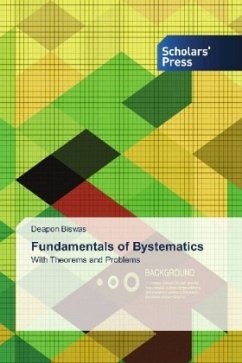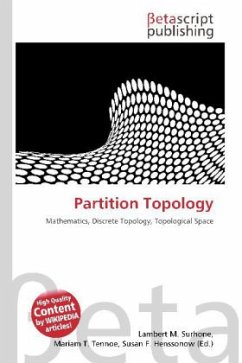
Partition Topology
Versandkostenfrei!
Versandfertig in 6-10 Tagen
19,99 €
inkl. MwSt.

PAYBACK Punkte
10 °P sammeln!
Please note that the content of this book primarily consists of articles available from Wikipedia or other free sources online. In mathematics, the partition topology is a topology that can be induced on any set X by partitioning X into disjoint subsets P; these subsets form the basis for the topology. The partition topology provides an important example of the independence of various separation axioms. Unless P is trivial, at least one set in P contains more than one point, and the elements of this set are topologically indistinguishable: the topology does not separate points. Hence X is not ...
Please note that the content of this book primarily consists of articles available from Wikipedia or other free sources online. In mathematics, the partition topology is a topology that can be induced on any set X by partitioning X into disjoint subsets P; these subsets form the basis for the topology. The partition topology provides an important example of the independence of various separation axioms. Unless P is trivial, at least one set in P contains more than one point, and the elements of this set are topologically indistinguishable: the topology does not separate points. Hence X is not a Kolmogorov space, nor a T1 space, a Hausdorff space or an Urysohn space. In a partition topology the complement of every open set is also open, and therefore a set is open if and only if it is closed. Therefore, X is a regular, completely regular, normal and completely normal.



